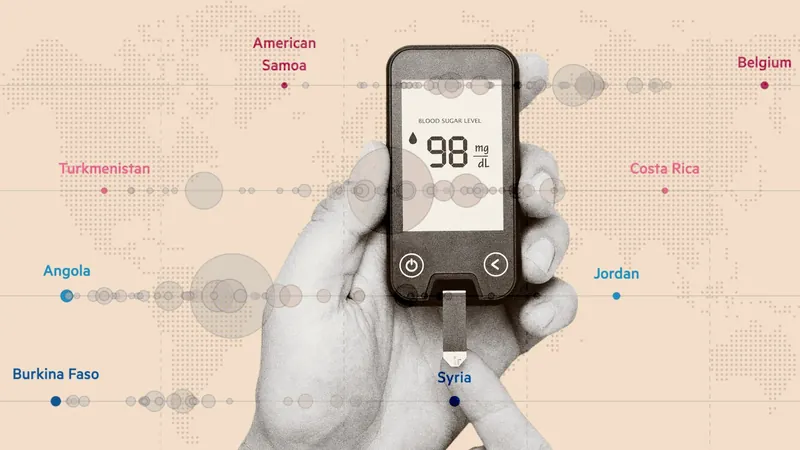
Struggling Gen Z Rejects Job Offers: The Surprising Costs of Work
2024-11-04
Author: Lok
Introduction
The job market is leaving many young adults feeling trapped and frustrated. A recent report reveals that rising living expenses and demands for professional attire are pushing many members of Gen Z—aged 16 to 25—to turn down job opportunities.
Mental Health Challenges
According to Jonathan Townsend, UK chief executive of the Prince’s Trust, “Young people are finding themselves in a vicious cycle. Poor mental health is having a negative impact on their work, and yet being unemployed also affects their mental health.” This unhealthy loop is raising alarm bells.
Financial Concerns
The NatWest Youth Index 2024 surveyed over 2,000 individuals from Generation Z and discovered that 10% of them have declined job offers primarily due to commuting costs or the financial burden of work-related clothing. Shockingly, 60% of Gen Z women and 45% of men worry that escalating living expenses will inhibit their ability to secure financial stability.
Impact on Confidence and Aspirations
The challenges these young workers face extend beyond just financial constraints. The daunting economic reality has substantial adverse effects on their confidence and future aspirations. A report from Vitality indicates that many in this generation are feeling overwhelmed by global issues such as inflation, climate change, and social injustice, leading to increased mental health issues.
Increase in Mental Health Days
Alarmingly, Gen Z individuals are reportedly taking one mental health day off work each week, far more than previous generations like millennials and Gen X.
Unemployment Due to Health
This troubling trend is reflected in a study from the Resolution Foundation, which highlights that the number of young individuals aged 18 to 24 who are unemployed due to health-related issues has dramatically risen from 93,000 to 190,000 in the past decade.
Barriers to Employment
Additionally, the NatWest Youth Index revealed that mental wellness concerns prevented 18% of Gen Z from even applying for jobs, while 12% withdrew from interviews, and 10% hesitated to seek help with their resumes or cover letters.
Signs of Hope
While the outlook may seem grim, there are signs of hope. Townsend emphasizes that a significant 68% of Gen Z remains resolute in achieving their life goals despite their ongoing financial and mental health struggles. Many of these young adults are turning to platforms like TikTok for support and community, sharing experiences and encouragement with peers.
Concluding Thoughts
“A clear window of hope exists for this resilient generation,” said Townsend. He believes that with targeted assistance, including job training and practical help, Gen Z can overcome the hurdles they face in entering the workforce.
“If we act now, with the support of partners like NatWest and government agencies, we can pave a smoother path for young people toward stable and fulfilling careers,” Townsend concluded. “This will not only uplift this generation but will also yield benefits for society and the economy for years to come.”
The question remains: will enough be done to support this resilient yet overwhelmed generation in their quest for employment? As they navigate a rapidly changing job landscape, the necessity for systemic change and support has never been more critical.




 Brasil (PT)
Brasil (PT)
 Canada (EN)
Canada (EN)
 Chile (ES)
Chile (ES)
 España (ES)
España (ES)
 France (FR)
France (FR)
 Hong Kong (EN)
Hong Kong (EN)
 Italia (IT)
Italia (IT)
 日本 (JA)
日本 (JA)
 Magyarország (HU)
Magyarország (HU)
 Norge (NO)
Norge (NO)
 Polska (PL)
Polska (PL)
 Schweiz (DE)
Schweiz (DE)
 Singapore (EN)
Singapore (EN)
 Sverige (SV)
Sverige (SV)
 Suomi (FI)
Suomi (FI)
 Türkiye (TR)
Türkiye (TR)